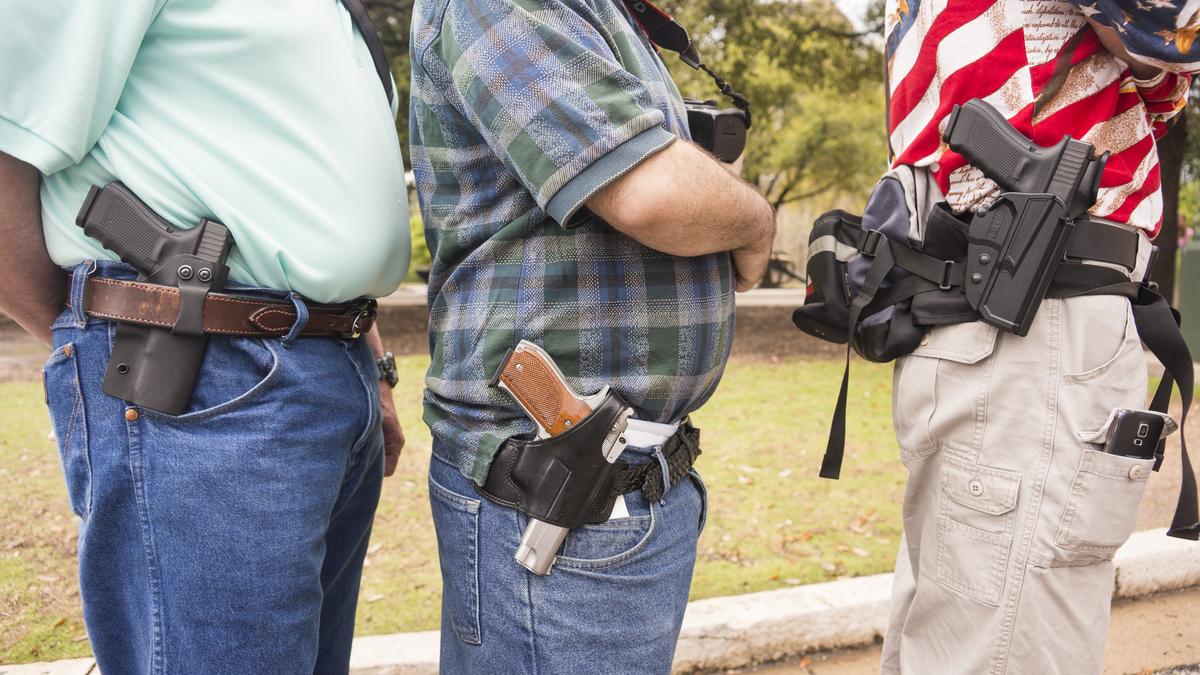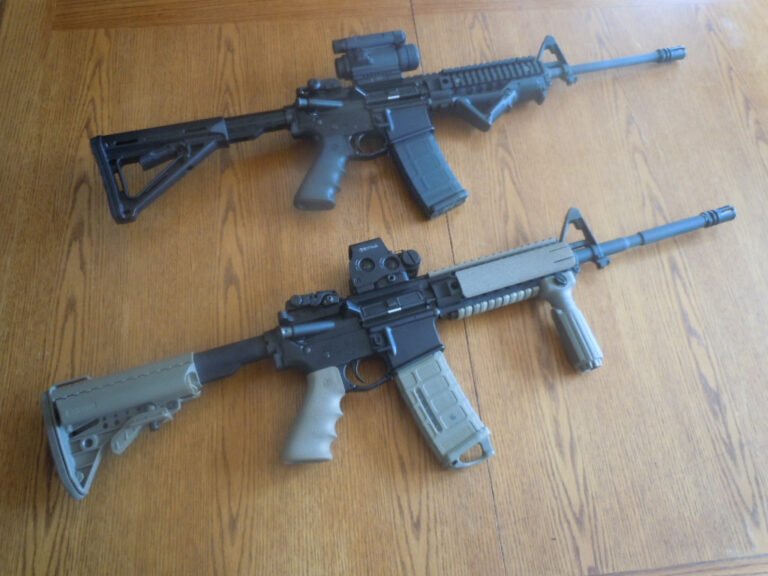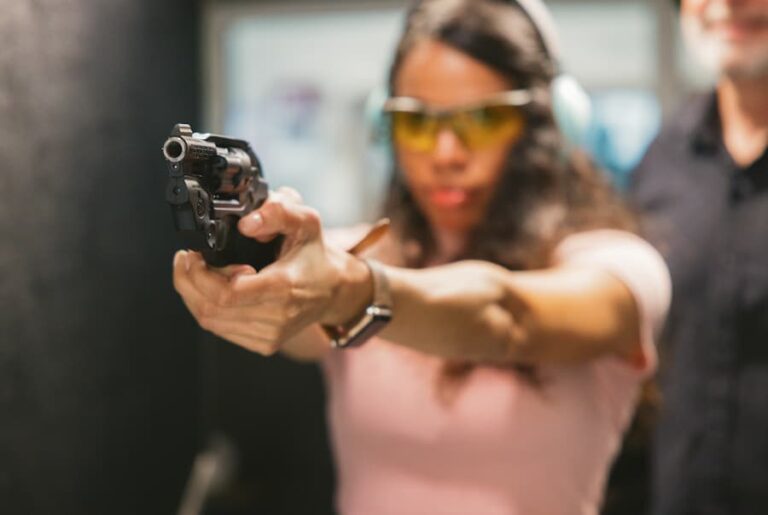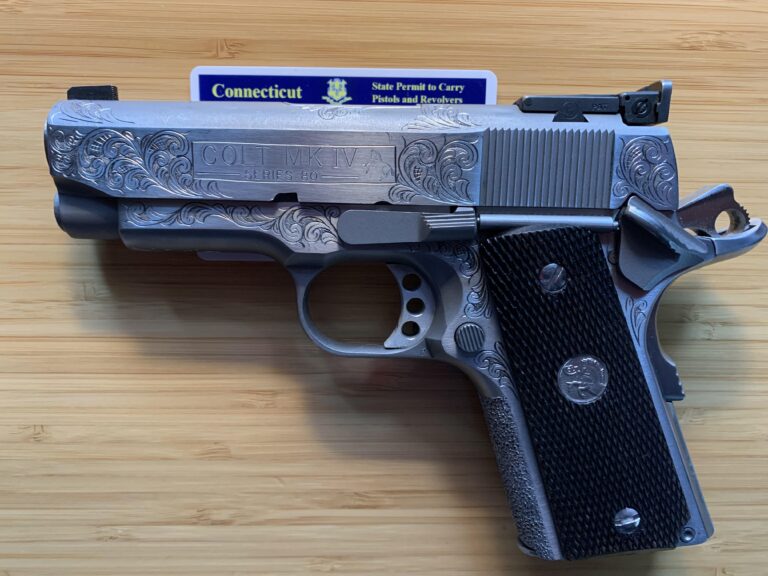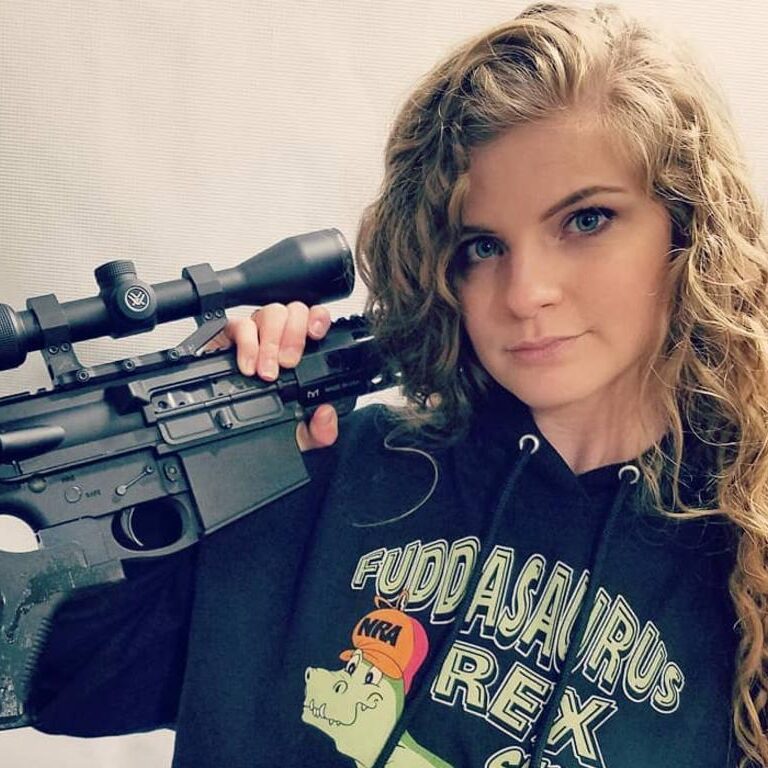Connecticut Open Carry: Laws, Requirements, Application & Online Training
Connecticut is one of the licensed open carry states in the USA, allowing individuals to carry a firearm openly, provided they have the necessary license. However, there are specific regulations and requirements that both residents and non-residents must follow to legally possess firearms in the state. In this article, we will explore Connecticut’s open carry laws, the application process for permits, and the areas where open carry is allowed or restricted.
Introduction
Connecticut recognizes the right of its residents and certain non-residents to openly carry firearms within its jurisdiction. However, this right comes with certain responsibilities and requirements to ensure public safety and proper firearm policy handling.
Connecticut Gun Law Summary
Connecticut operates under a May-issue policy for the state pistol permit. This means that even if all the requirements for the permit are met, the final issuance of the permit is subject to the discretion of the authorities.
The Department of Emergency Service and Public Protection (DESPP) is responsible for processing firearm permits in the state. To obtain a permit, individuals will first receive a provisional permit from their local law enforcement agency, while the DESPP processes the final one.
Is Open Carry Legal In Connecticut?
Yes, open carry is legal in Connecticut, but only with a valid firearm permit issued by the state. The minimum age to apply for this permit is twenty-one years old. It’s essential to understand that Connecticut does not recognize permits from other states, and non-residents must apply for a permit in Connecticut to legally carry firearms.
The permit application process includes a firearm demonstration, where applicants must pass a live-fire session under the supervision of a certified firearm instructor. Additionally, a successful NICS background check is a crucial requirement for obtaining the permit.
Connecticut Open Gun Law Quick View
The following table summarizes key aspects of Connecticut’s open carry laws for both long guns and handguns:
| Law/Policy | Long Guns | Handguns | Comments |
|---|---|---|---|
| State permit for open carry | Yes | Yes | A valid permit is required to possess firearms in Connecticut. Applicants must complete firearm training and a NICS criminal record check. |
| Firearm registrations for open carry | Partial registration | Partial registration | Connecticut has partial firearm registration for firearms used between 1994 and 2014. |
| Assault weapon for open carry | Yes | Yes | Firearms classified as assault weapons must have more than two features provided by the state. |
| Magazine limit | Yes | Yes | Connecticut bans firearms with magazines holding more than ten rounds. High-capacity magazine restrictions are in place. |
| License for the owner of a firearm | Not required | Not required | A separate license is not needed for firearm registration in Connecticut. |
| Red flag law | Yes | Yes | A court can restrict firearm possession if an individual is considered a threat to themselves or society. |
| Castle doctrine law | Yes | Yes | Connecticut has a Castle Doctrine, which means individuals have no duty to retreat when defending their homes or property. Immunity may be granted for using excessive force with a valid permit. |
| Background check for private dealers | Yes | Yes | Private dealers must conduct background checks through licensed dealers in the state. |
| Preemption | Partial | Yes | Connecticut does not explicitly have preemption laws, but some local restrictions may apply. |
| Concealed carry permit | Yes | Yes | Connecticut issues permits for both concealed and open carry. |
| Concealed carry in personal vehicle | Yes | Yes | Concealed carry is permitted in personal vehicles. |
| Open carry in Schools | No | No | Firearms are not allowed on school premises in Connecticut. |
Where Is It Legal To Open Carry In Connecticut?
Connecticut permits open carry in the following areas:
- Restaurants and Bars: Open carry is allowed in the eatery area of restaurants and bars.
- Personal Vehicle: Open carry is permissible in private vehicles, provided the firearm is in plain view, and the individual has a valid permit.
- Roadside Areas: Open carry is permitted along roadside areas in the state.
- Places of Worship: Open carry is allowed in places of worship unless there is a specific post or signage prohibiting firearms.
Where Is It Illegal To Open Carry In Connecticut?
Connecticut prohibits open carry in the following places:
- Schools: Firearms are not allowed on school premises, whether privately or government-owned.
- State Parks and Forests: Firearms cannot be openly carried in state or national parks, forests, or wildlife management areas without proper authorization from the environmental protection department.
- General Assembly Buildings: Open carry is not allowed in buildings or properties used by the state’s general assembly or for housing the offices of assembly members or meeting places.
- Properties in Woodbridge: Open carry is prohibited on any property owned by the town of Woodbridge.
- Private Properties That Restrict Firearms: Firearms cannot be possessed or openly carried in buildings or properties with signage or posts prohibiting weapons.
- Restricted Areas: Open carry is not allowed in areas restricted by federal government laws.
Relevant Open Carry Laws And Legislature In Connecticut
In addition to the basic open carry laws, Connecticut has several other relevant statutes that regulate firearms and open carry:
Magazine Capacity Restriction
Connecticut restricts magazine capacity to ten rounds. Firearms with magazines holding more than ten rounds cannot be sold, imported, possessed, distributed, or used for open carry in the state. However, there are exemptions for individuals who possessed high-capacity firearms before the start of 2014 and those using twenty-two caliber tube magazines.
Ammunition Restrictions
The state prohibits firearms with armor-piercing ammunition and those with a caliber of fifty. Before purchasing a firearm in Connecticut, individuals must obtain a firearm purchase permit, a handgun permit, or an ammunition certificate. These permits require a NICS criminal record background check.
No Weapon Sign In Connecticut
It is illegal to open carry or possess a firearm in a premise with signage or a post prohibiting the possession of weapons. Violating this provision is considered a Class E felony in Connecticut, leading to firearm seizure and confiscation.
Preemption Law In Connecticut
Connecticut has partial preemption laws, allowing local authorities to enact regulations concerning open carry. As such, local laws may differ from state laws, and individuals should be aware of the specific regulations in their area.
Red Flag Law
Under Connecticut statute 29-38c, multiple police officers or the state attorney general can petition the court to approve a red flag policy if an individual is deemed a threat to themselves or society. Upon approval, firearms can be seized, and a restriction order may be issued.
Brandishing Of Firearms
While Connecticut does not have a specific brandishing law, individuals can be charged with misconduct if they recklessly use a firearm to cause fear or engage in threatening behavior. Misusing a firearm illegally may lead to arrest under breach of peace in the second degree.
Open Carry Under The Influence
Connecticut law (statute 53-206d) makes it illegal to possess a firearm while under the influence of alcohol with a blood alcohol content of 0.08% or more, or while intoxicated by any other substance.
Open Carry While Hunting In Connecticut
Hunters with legal permission can open carry while hunting in Connecticut’s forests. The state also has hunter harassment laws to protect legal hunting activities from interference.
Conclusion
Connecticut allows licensed individuals to carry firearms in various locations, subject to specific restrictions. Residents and non-residents must adhere to the state’s firearm permit regulations and be aware of the prohibited areas for open carry. Abiding by these laws ensures the safe and responsible handling of firearms within the Constitution State.
FAQs;
Q1. Can non-residents open carry in Connecticut?
Yes, non-residents can open carry in Connecticut with a valid firearm permit issued by the state.
Q2. What is the minimum age to apply for a firearm permit in Connecticut?
The minimum age to apply for a firearm permit in Connecticut is twenty-one years old.
Q3. Can individuals with permits from other states open carry in Connecticut?
No, Connecticut does not recognize permits from other states, and individuals must obtain a Connecticut firearm permit to open carry in the state.
Q4. Are there restrictions on magazine capacity in Connecticut?
Yes, Connecticut restricts magazine capacity to ten rounds for firearms.
Q5. Is it legal to open carry in Connecticut?
No, open carrying of handguns is generally prohibited in Connecticut, even with an active pistol permit. Connecticut is a “no open carry” state for firearms. Carrying a handgun outside a home or place of business requires an active concealed carry pistol permit. Long guns like rifles or shotguns do allow open carry in some circumstances where the owner has their eligibility certificate.
Q6. Can I open carry a knife in Connecticut?
Connecticut law does not outright prohibit all forms of open-carried knives. However legal knives become classified as illegal dirk/daggers if they are carried with intent to harm others unlawfully. Switchblades, gravity, automatic, and similar quick-release blade knives remain illegal in Connecticut even with lawful intent of carrying. Clubs, martial arts weapons, and items intended for weapon use are also prohibited in public places.
Q7. Can individuals possess armor-piercing ammunition or caliber fifty firearms in Connecticut?
No, Connecticut prohibits the possession of firearms with armor-piercing ammunition or caliber fifty.
